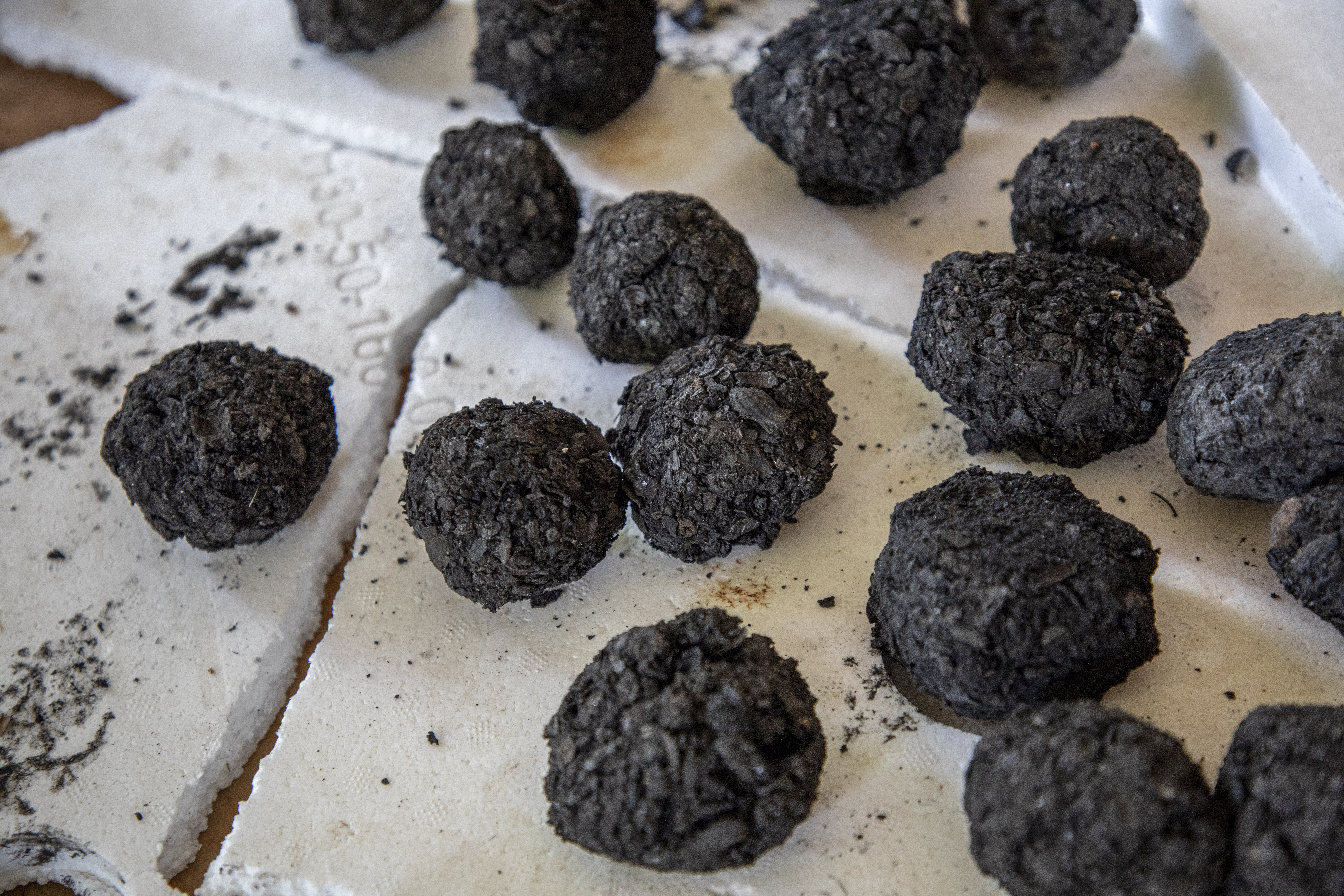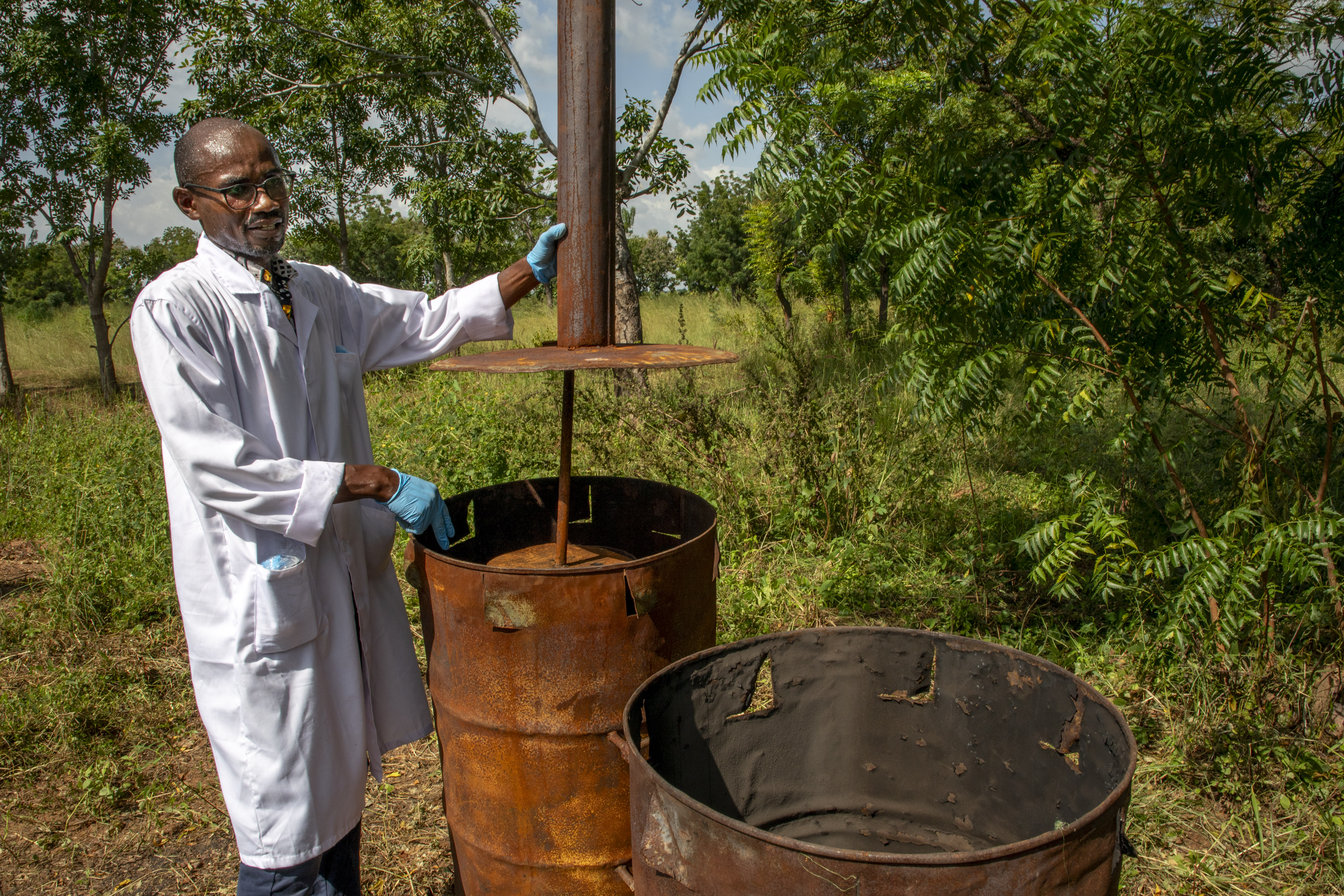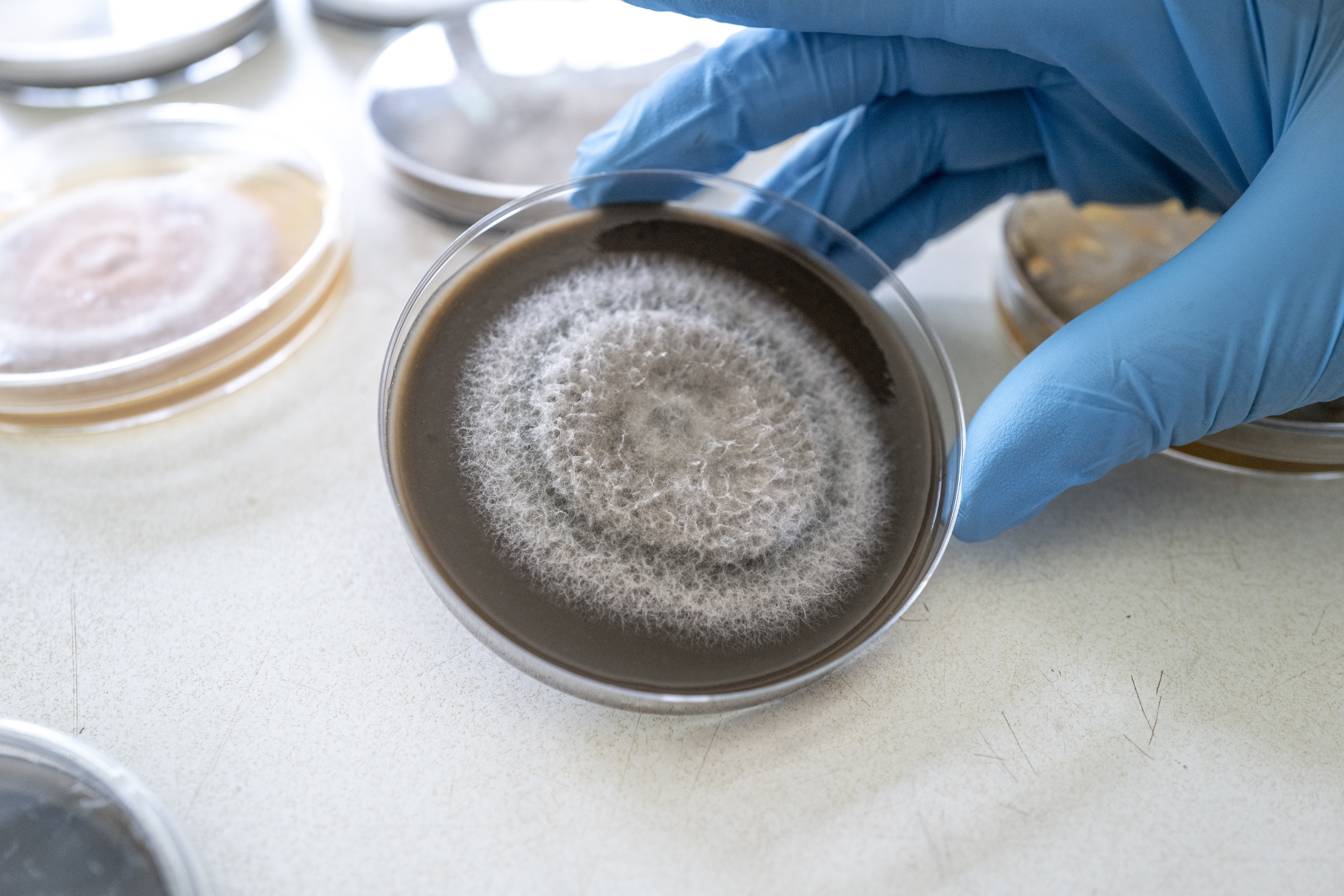Ghanaian environmental technologist Abubakari Zarouk Imoro led the creation of Myco-Substitutes in response to the health risks of informal toilets and dumping of faecal sludge.
The treatment process uses viruses known as bacteriophages to feed on and remove bacteria from faecal sludge. Common fungi, such as Basidiomycetes, Rhizopus, Aspergillus niger, and Aspergillus flavus, are then introduced to the remaining solid waste, which functions as a growth medium to cultivate mycelia, the root-like structure of the fungi. Toilet paper in the sludge functions as a carbon source for mycelial growth. After 72 to 120 hours, 10 litres of sludge can produce 500 grams of mycelia for harvest. The ‘Myco’ in the innovation’s name denotes mycelia-based material.
Mycelial threads are used to create an alternative to cotton or synthetic thread for the garment industry. The leather-like fungi mycelia (an alternative to animal hide) is grown in 500 mm x 500 mm sheets for tanning and making bags, belts, and shoes. The strength of cowhide can be achieved by combining several sheets of mycelial leather.
The threads are straightened and combined using natural latex and fibre from the Calotropis procera (giant milkweed) and cotton from the Kapok tree when additional strength is required. The mycelia in combination with the giant milkweed fibre are spun into a yarn with a mass similar to cotton.
The Myco-Substitutes technology, which is in pre-pilot phase, produces between one and five balls of yarn a day. This is dependent on factors including the fungal species used, available space, and the availability of giant milkweed.
Imoro and his team receive faecal sludge (faeces, toilet paper and black water) from wastewater treatment plants for treatment and processing into the growth medium for mycelia cultivation. They analyse it for bacteriophages, which are isolated and cultivated over 72 hours before being added back to the sludge where they kill bacteria present.
The liquid is then treated with chlorine or UV light and can be used for irrigation. The remaining sludge is converted into biochar, which can enrich soil or create environmentally friendly briquettes.
Imoro and his team have created a circular economy for faecal sludge, where value is created from all parts of the waste.

By generating value from sustainable recycling of faecal sludge, we are creating the incentive for people to responsibly dispose of their waste. We’ve also created an affordable alternative to cotton and leather imports in the textile industry.
Zarouk Imoro




